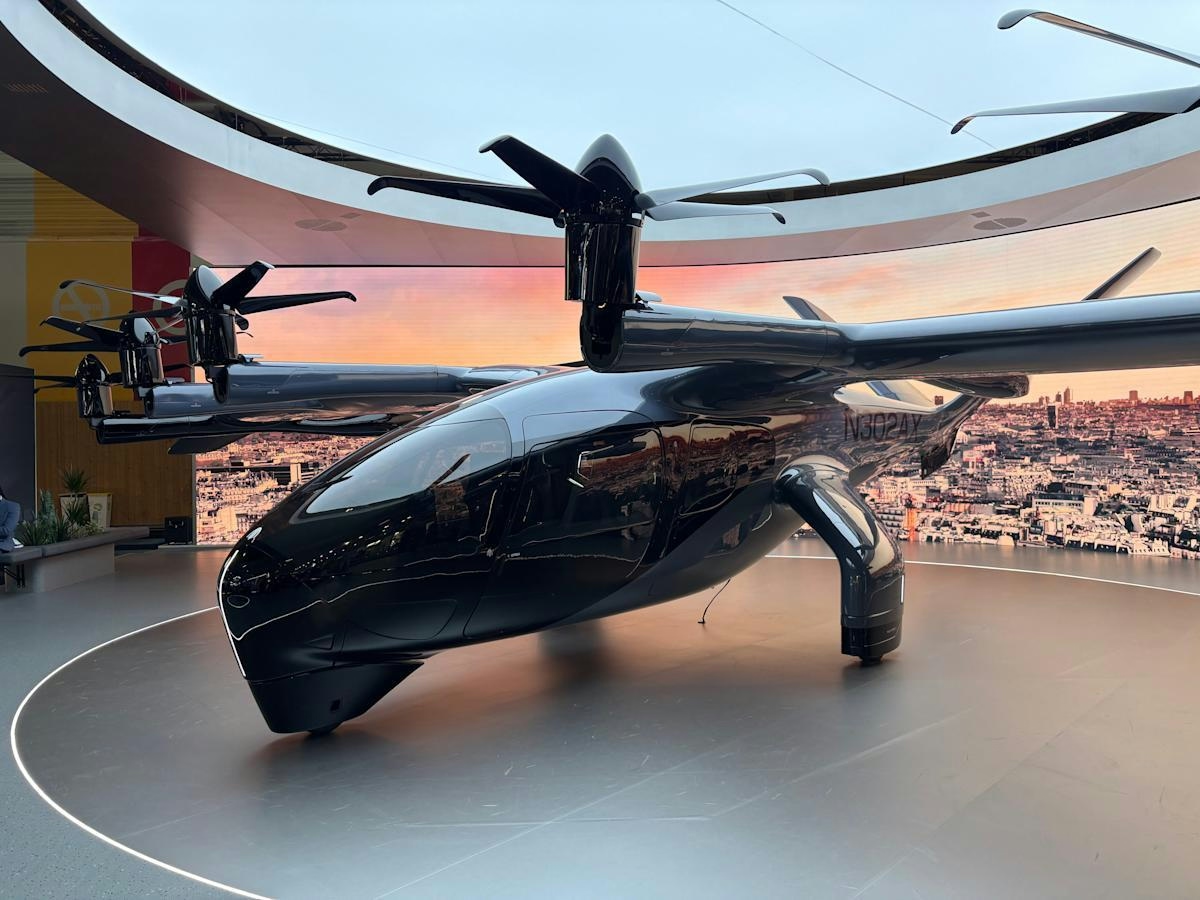أيروجيني — مساعدك الذكي للطيران.
الرائج الآن
Categories
Jet Set Go CEO Advances Electric Air Taxi Initiative

Jet Set Go CEO Advances Electric Air Taxi Initiative
Kyle Clark, founder and CEO of Beta Technologies, is spearheading an ambitious effort to revolutionize regional air travel through electric air taxis. In a recent discussion, Clark reflected on the long journey that has culminated in this milestone, describing the project as the realization of his lifelong work. “This was my senior thesis in college over 25 years ago… We’re here flying real people into a big airport. We've still got a little ways to go in getting to full commercial service, but this was a massive step,” he remarked, underscoring the significance of the current phase.
Vision for Electric Aviation
Clark envisions a future where electric-powered flights dramatically reduce costs and expand accessibility for both personal and business travel. He emphasized the potential to transform mobility by enabling low-cost flights between airports and extending access to vertiports and helipads, effectively turning a wide range of locations into viable landing zones. This, he suggests, could fundamentally reshape how people move across regions, unlocking new possibilities for air travel.
Market Challenges and Competition
Despite the promise, Jet Set Go’s electric air taxi ambitions face considerable challenges amid a rapidly evolving and competitive market. The Advanced Air Mobility sector is dominated by fierce competition, particularly from U.S.-based companies such as Archer Aviation and Joby Aviation. These firms are making significant technological strides with their electric vertical takeoff and landing (eVTOL) aircraft and are actively forming strategic partnerships to accelerate market entry and mitigate operational risks. Notably, Joby Aviation has partnered with Delta Air Lines, exemplifying the strategic alliances shaping the industry.
Meanwhile, European eVTOL startups, once regarded as frontrunners, are now contending with financial difficulties and the increasing dominance of American competitors. This shift in market dynamics raises questions about Jet Set Go’s ability to establish a strong position amid intensifying rivalry and changing investor sentiment.
Regulatory and Infrastructure Hurdles
Beyond competition, the successful deployment of electric air taxis hinges on regulatory coordination and infrastructure development. Clear regulatory frameworks and the establishment of vertiports and supporting facilities are essential for commercial viability. U.S. companies are already advancing in this area, with Archer Aviation announcing plans to launch services in Dubai and Abu Dhabi, signaling the global race to commercialize advanced air mobility.
Despite these obstacles, Clark remains optimistic about the transformative potential of electric aviation. As Beta Technologies and Jet Set Go continue to push forward, the industry watches closely to see how they will navigate the complex challenges and opportunities that lie ahead.

Emirates Unveils Cabin Design for New Boeing 777X

Eighteen Years On, the Airbus A380 Remains Central to a $34 Billion Airline

How a boom in luxury airline seats is slowing down jet deliveries

Navitaire Outage Attributed to Planned Maintenance

DigiYatra Debuts Outside Aviation at India AI Impact Summit

Vietnam Orders Strengthen Boeing’s Commercial Outlook

Airbus Signals Uncertainty Over Future A400M Orders

JobsOhio Awards $2 Million Grant to Hartzell Propeller for Innovation Center

Collins Aerospace Tests Sidekick Autonomy Software on YFQ-42A for U.S. Air Force CCA Program

How the Airbus A350-1000 Compares to the Boeing 777
